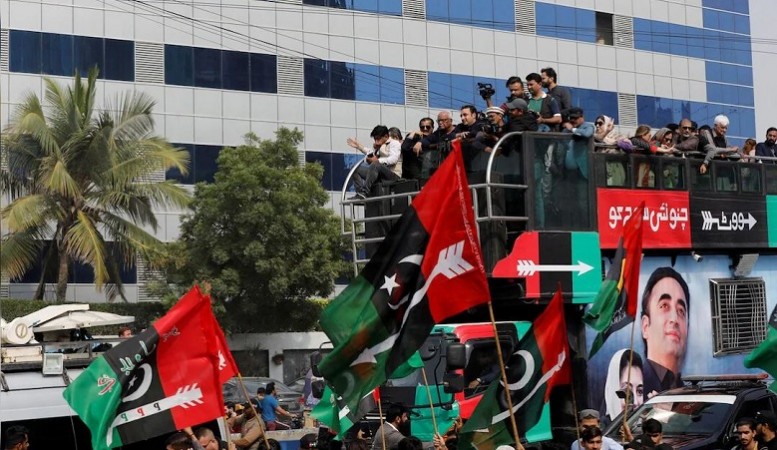
Pakistan's 2024 Election: 128 Million Voters Ready for Change- In a significant democratic event, Pakistan braces for its 2024 election slated for Thursday, with 128 million eligible voters poised to determine the country's new leadership. Notably, the Pakistan Army maintains a vigilant eye over the proceedings, underscoring its influential role in the electoral process. The frontrunners for the top position include Nawaz Sharif of the Pakistan Muslim League, Bilawal Bhutto-Zardari representing the Pakistan Peoples Party, and candidates from Imran Khan's Pakistan Tehreek-e-Insaf party. Analysts suggest that Nawaz Sharif enjoys favor from the Pakistan Army, raising questions about the fairness of the electoral outcome.
Former Indian High Commissioner to Islamabad, Ajay Bisaria, remarked, "The scheduled February 8 event appears less like an election and more like a selection, given the evident preferences of Pakistan's Army in recent days. They seem to favor Nawaz Sharif's selection."
The 2024 election holds immense significance as it marks a potential shift in power dynamics between the military and civilian leadership in Pakistan. For the first time in the nation's history, the popularity of a civilian leader, Imran Khan, challenges the traditional dominance of the Army. However, Khan faces repercussions for his defiance, with prospects of imprisonment looming over him until the military's stance softens.
Nawaz Sharif's resurgence parallels Imran Khan's past predicament, with Sharif previously incarcerated on corruption charges. His return to the political arena in 2023, coinciding with the dismissal of his legal cases, hints at a calculated reemergence onto Pakistan's political stage.
Pakistan's 2024 Election: Implications for India
India closely monitors developments in its neighboring Pakistan, especially during election cycles, given the regional implications. The role of the Pakistan Army in influencing the selection of the next prime minister remains a key concern for New Delhi, particularly in light of Pakistan's historical support for terrorism.
Geopolitical expert C Raja Mohan commented, "India has navigated relations with Pakistan's military rulers before. However, General Munir's quest for increased control may signal a departure from the past. While the prevailing assumption in Delhi is that Pakistan remains static, Munir's ascendancy suggests a shifting landscape."
Nawaz Sharif's recent overtures towards India, coupled with acknowledgments of India's global advancements, signal a potential opening for bilateral relations. However, Sharif's party manifesto conditions peace with India upon New Delhi's reversal of its decision to revoke Article 370, which granted special status to Jammu and Kashmir.
In summary, Pakistan's 2024 election not only shapes the nation's future but also carries implications for regional dynamics, particularly with regards to India-Pakistan relations.
Deadly Blasts Rock Pakistan's Balochistan Ahead of Elections
Pakistan Election Gears Up: 44 Parties Vie for Parliamentary Seats
Nawaz Sharif's Political Comeback: Shifting Dynamics in Pakistan's Election